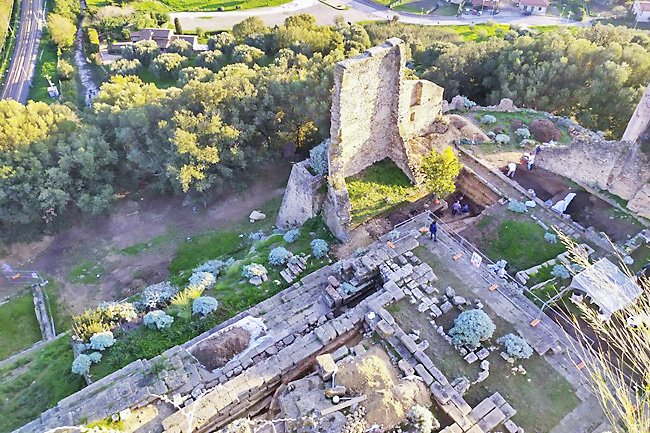Frances D’emilio
ROME (AP) – Archaeologists in southern Italy have discovered ancient warrior helmets and the ruins of a painted brick wall at a site that might have been a forerunner of a temple dedicated to the deity Athena, officials said on Tuesday.
Italian Culture Minister Dario Franceschini said the remains dug up at the popular tourist site of Velia were found on what had been an acropolis of one of Magna Graecia’s most important cities. Velia is 40 kilometres southeast of Paestum, a much-visited site of ancient Greek temples.
The recently completed excavation at Velia unearthed a pair of helmets in good condition, the remains of a building, vases with the Greek inscription for “sacred” and metal fragments of what possibly were weapons, the Culture Ministry said.
State Museums Director Massimo Osanna, who formerly had long directed excavations at Pompeii, Italy’s most celebrated excavated site, said the area explored at Velia probably contained relics of offerings made to Athena, the mythological Greek deity of war and wisdom, after a key naval battle in the nearby Tyrrhenian Sea.
In the 6th-Century BC battle of Alalia off the coast of Corsica, Greek forces were victorious over Etruscan forces and their Carthaginian allies.
Velia is famed for being the home of an ancient Greek school of philosophy, including philosophers Parmenides and Zeno. It was part of Magna Graecia, the area of southern Italy colonised by Greek city-states. The settlement at Velia occupied an upper part, or acropolis, of the area as well as hillsides, and was surrounded by a wall. The city’s ancient name was Elea.
Velia’s founding dates to about 540 BC by colonists from Asia Minor.





